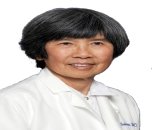
Madalene C Y Heng
Professor of Medicine/Dermatology UCLA School of Medicine USA
Title: Phosphorylase kinase inhibition and removal of aggravating factors in the induction of long term remissions in psoriasis
Biography
Biography: Madalene C Y Heng
Abstract
Phosphorylase kinase (PhK) is a cyclic AMP-dependent dual specificity kinase capable of breaking down glycogen and phosphorylating both serine/threonine and tyrosine moieties in the activation of the transcription activator, NF-kB, which in turn is responsible for activating multiple genes responsible for inflammation and cell proliferation. Elevated PhK levels have been observed to correlate with increased phosphorylation and psoriatic activity, while suppression of PhK activity leads to resolution of psoriasis. Genes for psoriatic familial susceptibility have been mapped to 17q and psoriasis susceptibility loci to both 16q and 17q, apparently correlating with genes for the β-subunit of PhK (mapped to 16q) and the regulatory subunit for cAMP protein kinase (mapped to chromosome 17). These genetic findings provide some credence that defective inhibition of PhK activity may be responsible for its elevated activity in psoriasis. PhK is released within 5 minutes following injurious stimuli, including trauma, contact allergens and infections, which serve as aggravating factors in psoriasis. We have developed a protocol, consisting of inhibition of PhK by its selective inhibitor, curcumin, together with removal of aggravating factors to achieve not only total clearance of psoriasis, but also to produce long term remissions without the need for maintenance therapy. In this presentation, we include details of this combination therapy and identification of aggravating factors in our psoriatic patients.
